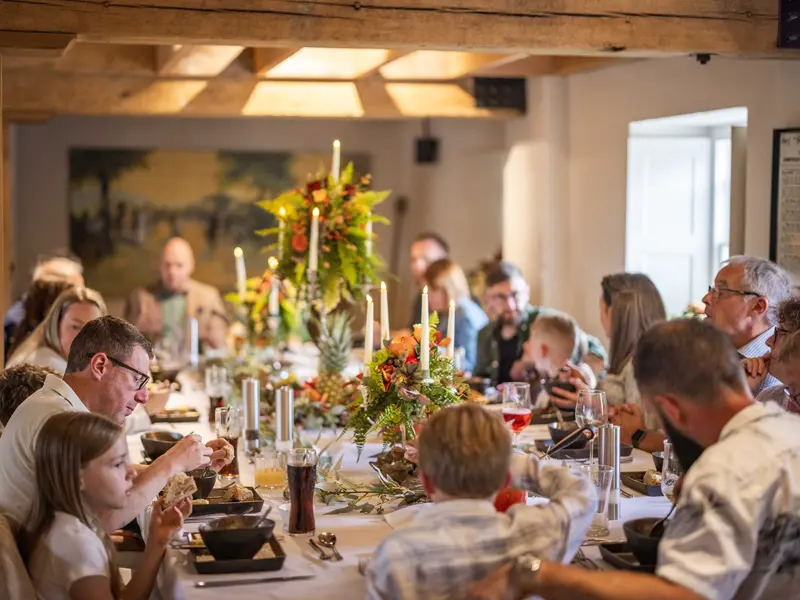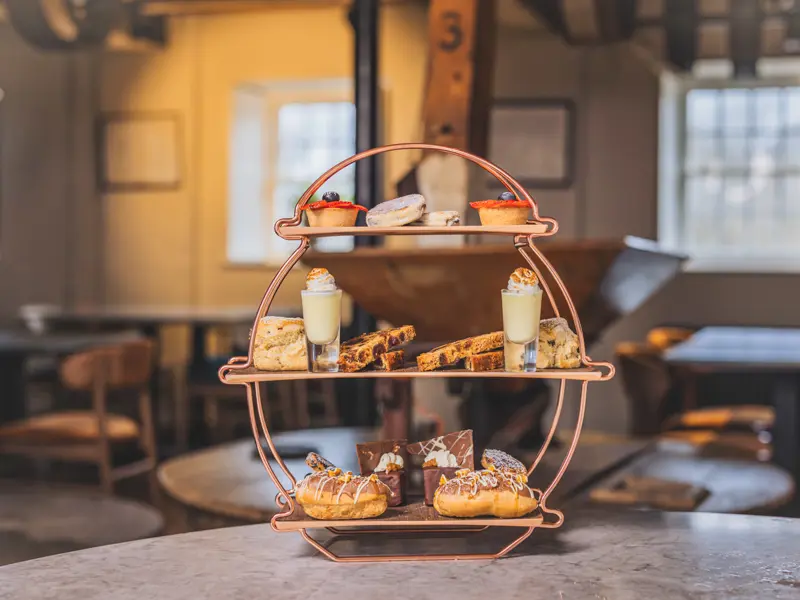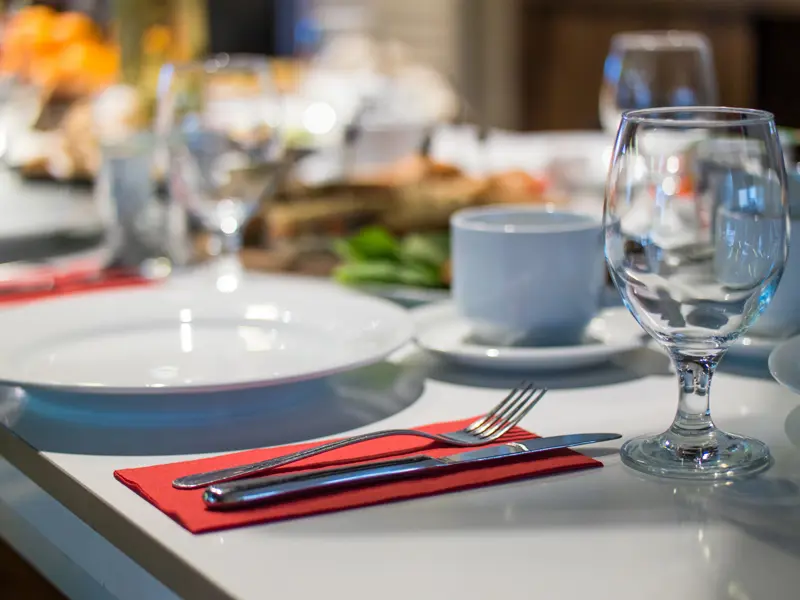Shining the light on Green Up farm
Over in the US and Canada, vertical farming is big business. Farmers grow food in trays or pipes stacked on top of one another. It’s yet to take off properly in the UK but in an unassuming unit in west Wales, self-taught growers Toni and Alex Borella are doing just that, albeit at a small scale. A former corporate accounts manager and an Italian chef respectively, they seem an unlikely duo at first. But Alex and Toni have created a thriving niche business with a strict zero-waste ethos. It’s this attention to detail which made them our first-choice suppliers at Black Pool Mill for all our microgreens.
When you’re presented with a plate of food with fresh green pea shoots or the intriguingly nutty sunflower leaves, don’t underestimate the care and attention that’s gone into such a small, yet integral, part of the dish. Originally from the Alps in Northern Italy, Alex worked as a chef at places like Cardigan’s Crwst and Top Joe’s in Narberth, so he knows exactly what the kitchen needs and wants.
“It’s such a fraction of the food but it delivers such ‘wow’ flavours,” he added. Indeed, the tiny – yet flawless – shoots growing in neatly stacked trays at their hydroponic vertical farm look almost too perfect to eat. But snipping off a shoot of deep purple beetroot or verdant green carrot, each one undoubtedly tastes intensely of the root.
Toni wasn’t always convinced microgreens were the way to go for the couple who met and married while they both lived in London. “He sold me the idea,” said Toni. “We wanted to grow something and Alex came up with the idea about microgreens and showed me with videos on YouTube.” They moved to Pembrokeshire in 2019 which was “the best move ever”.
“We were meticulous when it came to learning how things grow,” she continued. After being furloughed during the Covid pandemic and then going through redundancy at the tech company where she worked as an account manager, Toni said it was “the perfect opportunity to do something new”.
Green Up Farm is a niche business and one of a kind in Pembrokeshire. But even from day one, they found a willing and supportive audience in the Welsh food and drink sector. “They’ve all been really supportive on our journey,” Toni said. “The feedback has helped us on our journey.” Starting slowly, it all went “a bit mad” as restaurants, local pubs and cafes started sourcing their microgreens.
An important part of their business ethos is to be as sustainable as possible and zero waste. The seeds are grown in natural coco coir, a by-product of the coconut industry, which goes into the normal green waste after use. It provides ideal peat-free growing conditions. Toni explained: “It’s a growing medium only without nutrients. All the nutrients the seeds need are in the seed husks. In just two to three weeks, they’ll be ready to go.”
And when the time comes for delivery, Alex heads out on his rounds in the electric company van and personally drops off each order, still alive and growing in the punnets. He’ll then pick up the trays from the previous delivery and reuse them back at the farm. It means the chefs can cut the microgreens right at the point of use.
“So far we haven’t used a single bit of single-use plastic,” said Toni. “We started on a zero-waste platform and that’s how we want to continue.” Yet to grow the business beyond Pembrokeshire makes their zero-waste approach almost impossible. As the distribution chain gets longer, then it becomes impossible for plastic trays to be returned. Rather than press on with growth at the expense of their zero-waste ethos, they’re currently looking into new solutions for packaging. Ideally they’d use compostable products but they might have to settle for recyclable options for now.
“It's a means to an end,” said Toni. But they’ll get there, of that, she’s sure. Their biggest challenge is energy costs – on a day in late October the unit is a balmy 18.7 degrees Celsius and 62% humidity. The dream is to move into their own passive solar greenhouses. In the summer they have to adjust seeding times to make allowances for a quicker growth rate. “We need them to be precise,” said Alex. “They need to look how the restaurants want them on that day.”
Their biggest sellers are pea shoots and nasturtium, although new trends come along all the time. “I’m very motivated by flavour,” said Alex. “They have to have a purpose on the plate.” The greens don’t just offer a burst of fresh, vibrant taste but a pop of colour too – creating visually appealing and Instagram-worthy plates of food. Not to mention the higher levels of vitamins, minerals, and antioxidants compared to their fully grown counterparts.
Green Up has been going from strength to strength in the two years they’ve been going but for Toni and Alex they feel as if “we’ve only just arrived”.
“It’s such a big family in Pembrokeshire and everyone supports each other,” Toni said. Alex agreed: “In Pembrokeshire you feel part of a village.”




